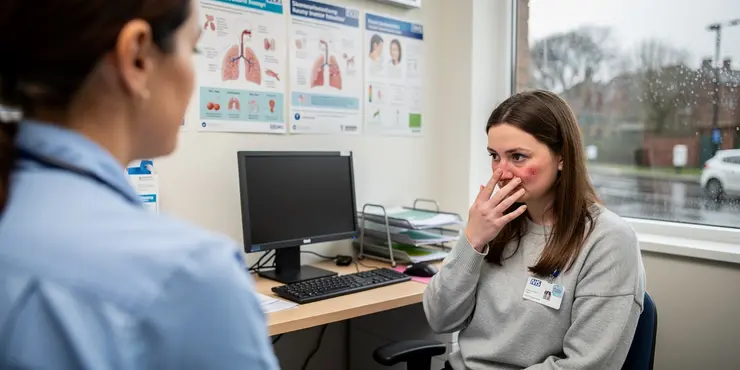
Find Help
More Items From Ergsy search
-
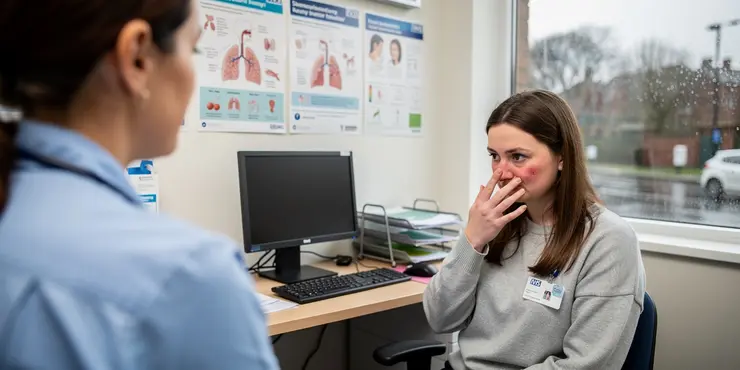
How does climate change affect pollen levels?
Relevance: 100%
-

Is climate change affecting sewage pollution levels?
Relevance: 61%
-

How are pollen counts measured?
Relevance: 50%
-
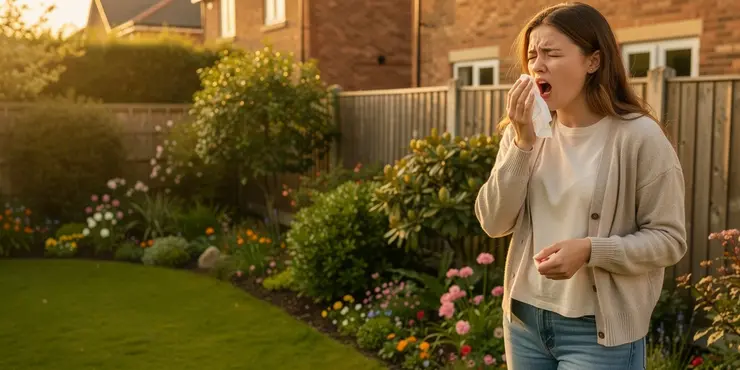
Experts Warn of Rising Hay Fever Cases as Pollen Counts Surge
Relevance: 49%
-

Will climate change affect the 2026 flu season?
Relevance: 48%
-

Are climate changes affecting mosquito populations in the UK?
Relevance: 47%
-
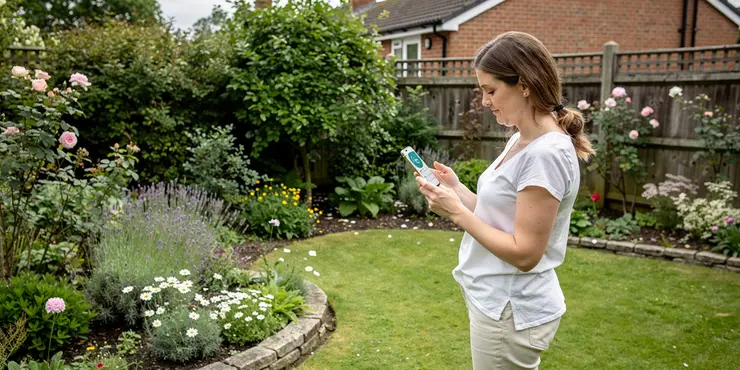
How can I reduce my exposure to pollen?
Relevance: 47%
-
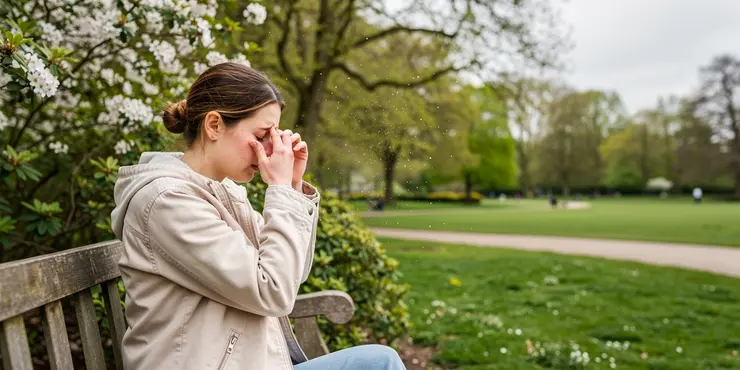
How does pollen affect people with hay fever?
Relevance: 46%
-

How does climate change affect water infrastructure maintenance?
Relevance: 46%
-
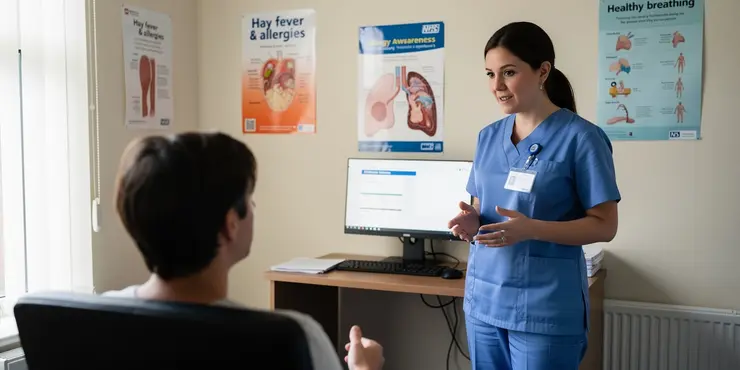
Do all plants produce pollen that causes hay fever?
Relevance: 40%
-

Why are experts warning of rising hay fever cases?
Relevance: 36%
-

How do climate changes affect mosquito-borne diseases in the UK?
Relevance: 36%
-
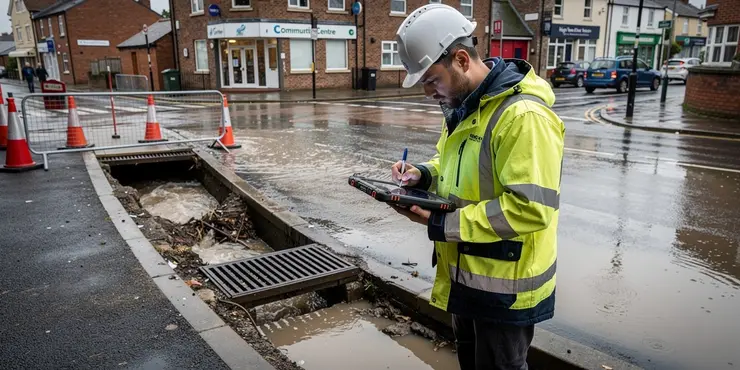
What role do climate change and weather play in water infrastructure issues?
Relevance: 30%
-
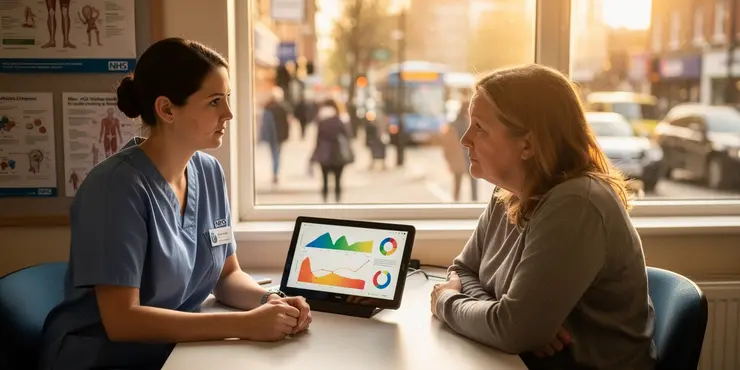
Is UK air quality changing?
Relevance: 30%
-

Are there any lifestyle changes that can help regulate cortisol levels?
Relevance: 29%
-
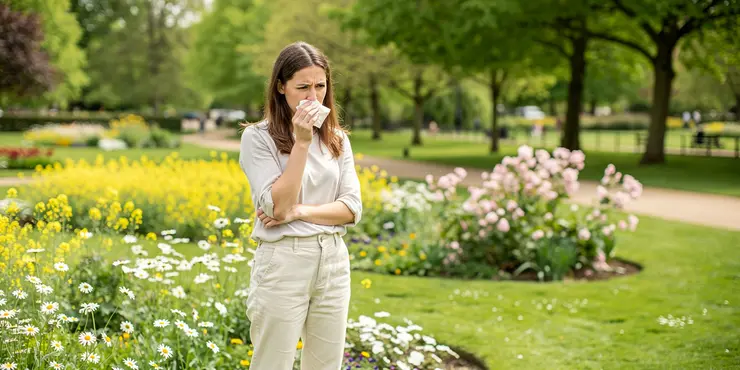
Are some people more prone to hay fever?
Relevance: 28%
-
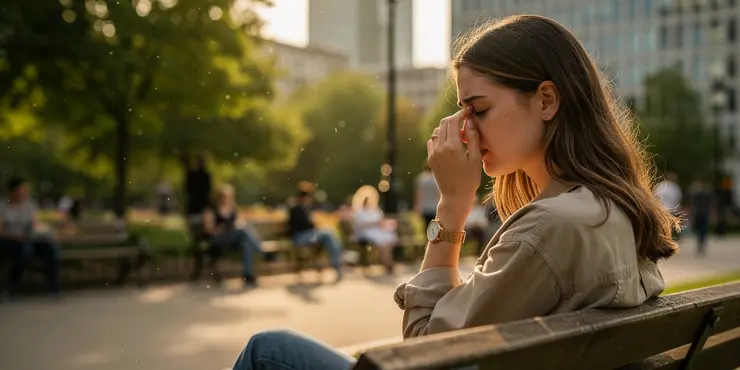
Is hay fever more common in urban areas?
Relevance: 26%
-

Can cortisol levels be measured?
Relevance: 25%
-
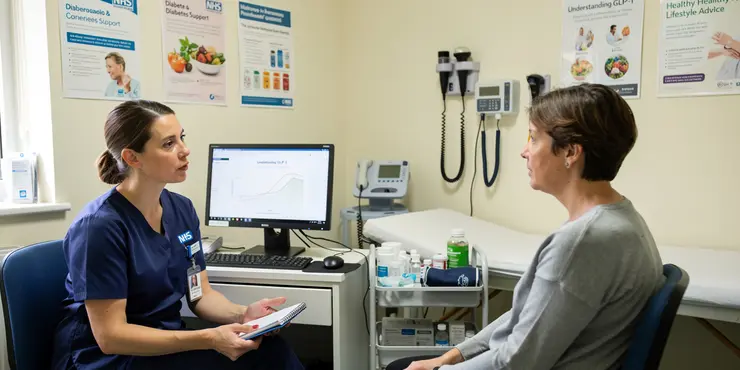
Can GLP-1 levels be measured?
Relevance: 24%
-

Why is reducing aldosterone levels important?
Relevance: 23%
-

What is the importance of PSA levels in treatment?
Relevance: 23%
-

How does Abiraterone affect hormone levels?
Relevance: 23%
-

Can diet influence cortisol levels?
Relevance: 22%
-

Can Baxdrostat affect blood sugar levels?
Relevance: 22%
-

How often should I check my blood glucose levels?
Relevance: 22%
-

How can stress management affect cortisol levels?
Relevance: 22%
-
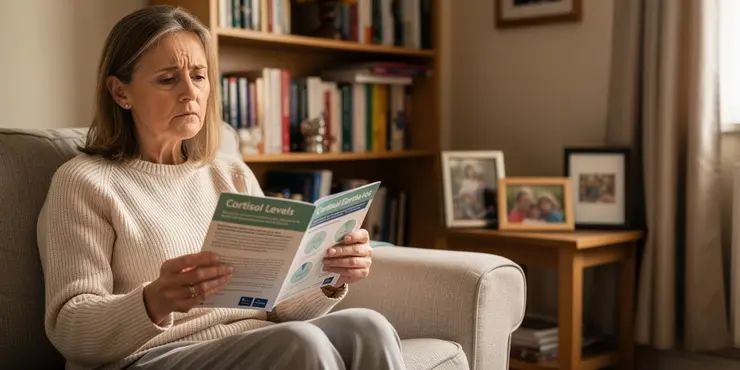
What can low levels of cortisol cause?
Relevance: 22%
-

What are PSA levels? - Prostate Cancer
Relevance: 22%
-

Can exercise influence cortisol levels?
Relevance: 22%
-

Are mosquito window screens effective in the UK?
Relevance: 22%
-
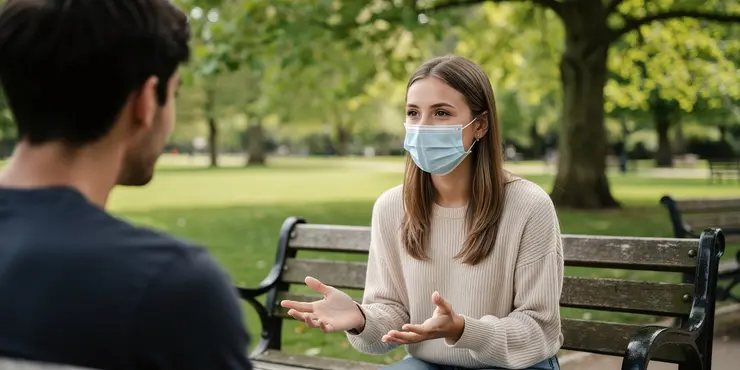
Do masks help with hay fever?
Relevance: 21%
-

What factors can influence cortisol levels?
Relevance: 21%
-
Can cortisol levels impact mood and mental health?
Relevance: 21%
-

What SPF level is recommended to prevent sunburn?
Relevance: 21%
-

What can high levels of cortisol cause?
Relevance: 21%
-

Hay fever advice | NHS
Relevance: 20%
-

Can mosquito screens help reduce hay fever symptoms?
Relevance: 20%
-

Can fiber help lower cholesterol levels?
Relevance: 20%
-
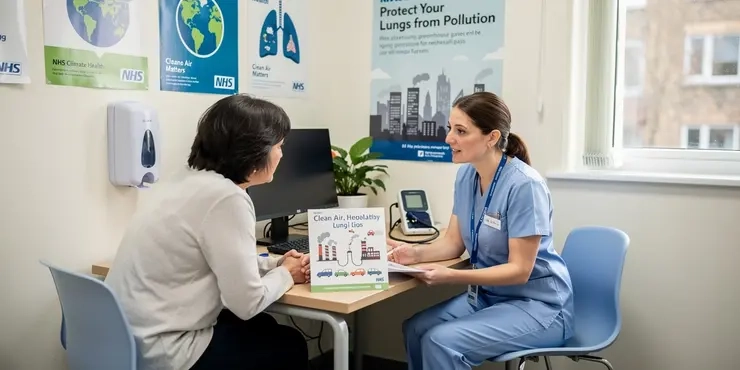
What are Greenhouse Gases and are they bad for my health?
Relevance: 20%
-
How does sugar affect my energy levels?
Relevance: 20%
Understanding Climate Change and Its Impact on Pollen Levels
Climate change is increasingly becoming a pressing concern across the globe, including the United Kingdom. One of its less obvious yet significant impacts is the alteration of pollen levels in the atmosphere, which can have profound effects on human health and the environment. Pollen, a fine powder produced by plants, is a common allergen and a key factor in hay fever and other allergic conditions. Understanding the relationship between climate change and pollen levels is crucial for mitigating these impacts.
Rising Temperatures and Pollen Production
One of the primary ways climate change affects pollen levels is through rising temperatures. As global temperatures increase, the growing season for many plants extends, leading to longer periods during which pollen is produced. In the UK, milder winters and earlier springs mean that plants can release pollen earlier in the year and for a longer duration. This extended pollen season increases the exposure and risk of allergic reactions for susceptible populations.
Increased CO2 Levels and Plant Growth
Another factor contributing to increased pollen levels is the rise in atmospheric carbon dioxide (CO2), a greenhouse gas responsible for much of climate change. Higher CO2 levels can enhance photosynthesis, leading to more vigorous plant growth. This increased growth can result in higher pollen production since plants typically use surplus energy to maximize their reproductive efforts, including pollen generation. Consequently, more CO2 in the atmosphere can lead to more prolific and sustained pollen production.
Changes in Vegetation Patterns
Climate change can also cause shifts in vegetation patterns, influencing which plant species dominate an area. As temperatures and precipitation patterns change, different plant species may thrive, potentially introducing new types of pollen into a region. In the UK, this could mean the migration of plant species native to warmer climates, bringing with them different pollen that could cause more severe allergic reactions in populations not previously exposed.
Impact on Public Health
The combination of longer pollen seasons, increased pollen production, and the introduction of new pollen types poses significant public health challenges. Increased exposure to pollen, especially in urban areas where air pollution is also a concern, can exacerbate respiratory problems like asthma and allergic rhinitis. For the UK, this means increased healthcare burdens and a need for better public health strategies to manage these growing risks.
Adapting to Changing Pollen Levels
To mitigate the effects of climate change on pollen levels, it's crucial for the UK to adopt adaptive strategies. These could include improving pollen forecasting models to better prepare and inform the public, enhancing green urban planning to manage plant species distribution, and investing in healthcare resources to support those with allergies. Public awareness campaigns can also help individuals take proactive measures to reduce their exposure during high pollen periods.
Understanding Climate Change and Its Impact on Pollen Levels
Climate change means our world is getting warmer. This is a big problem everywhere, including the UK. One way it affects us is by changing pollen levels. Pollen is a tiny powder from plants. It can make people sneeze and have itchy eyes. Understanding how climate change affects pollen is important to help us feel better.
Rising Temperatures and Pollen Production
As the earth gets warmer, plants have more time to grow each year. In the UK, this means winters are not as cold, and spring comes earlier. Because of this, plants make pollen for a longer time. This means people who are allergic to pollen might sneeze and itch for more days.
Increased CO2 Levels and Plant Growth
The gas called CO2 in the air is going up. This helps plants grow bigger and make more pollen. When plants have a lot of energy, they make more pollen. So, if there’s more CO2, there will be more pollen too. This can make allergies worse.
Changes in Vegetation Patterns
Climate change can also change which plants grow where. Some plants that like warmer places might start growing in the UK. These new plants can bring different pollen. This might cause more allergies in people who aren't used to it.
Impact on Public Health
Longer pollen seasons and new kinds of pollen can make health problems worse. Especially for people with asthma or hay fever. This can be even worse in cities with lots of air pollution. It’s important to find ways to help people stay healthy.
Adapting to Changing Pollen Levels
We can try to prepare for more pollen. One way is to improve how we predict when pollen levels will be high, so people know when to stay inside. We can also plan cities better and plant different kinds of plants. Teaching people about how to avoid pollen can help them stay healthy.
Frequently Asked Questions
How does climate change impact pollen production?
Climate change leads to warmer temperatures and higher levels of carbon dioxide, which can increase pollen production in plants.
Does climate change affect the length of the pollen season?
Yes, climate change can cause the pollen season to start earlier and last longer due to warmer temperatures.
What is the effect of rising temperatures on pollen levels?
Rising temperatures can enhance plant growth and result in higher pollen levels.
How does increased carbon dioxide influence pollen levels?
Increased carbon dioxide can stimulate plant photosynthesis and growth, leading to higher pollen production.
Can climate change cause more severe allergy seasons?
Yes, more pollen in the air due to climate change can lead to more severe allergy seasons.
Do higher temperatures affect pollen distribution?
Higher temperatures can affect wind patterns and the distribution of pollen, dispersing it over wider areas.
What role do extreme weather events play in pollen levels?
Extreme weather events, like heavy rains and storms, can alter local pollen levels by affecting plant growth and pollen dispersal.
Can climate change influence the types of plants that produce pollen?
Yes, changing climates can alter plant composition in certain areas, introducing new pollen types to the region.
How does climate change affect people with pollen allergies?
People with pollen allergies may experience more frequent and intense symptoms due to increased and prolonged pollen exposure from climate change.
Are there geographical regions more affected by pollen level changes due to climate change?
Yes, regions that experience significant temperature and weather pattern shifts may see greater changes in pollen levels.
What impact does climate change have on pollen from trees?
Climate change can lead to earlier flowering and increased pollen production in many tree species.
Can climate change cause changes in pollen from grasses and weeds?
Yes, grasses and weeds may have longer growing seasons and produce more pollen in response to climate change.
Does climate change have an impact on pollen concentration in the air?
Climate change can lead to higher concentrations of pollen in the air due to increased production and longer release periods.
What are the health implications of increased pollen levels due to climate change?
Increased pollen levels can exacerbate respiratory issues, including asthma and hay fever, impacting overall public health.
How does climate change affect allergenic pollen specifically?
Climate change can increase the levels and distribution of allergenic pollen, worsening symptoms for allergy sufferers.
Are urban areas affected differently by pollen level changes due to climate change?
Urban areas can experience 'heat island' effects, leading to earlier and more intense pollen seasons compared to rural areas.
Can pollen levels fluctuate annually due to climate change?
Yes, annual variations in climate conditions can cause fluctuations in pollen levels and distribution.
Does climate change affect the onset of seasonal allergies?
Climate change can cause seasonal allergies to begin earlier in the year as plants start to release pollen sooner.
How do scientists predict future changes in pollen levels due to climate change?
Scientists use climate models and plant biology studies to predict future pollen levels and their potential impact on allergy sufferers.
What strategies can be implemented to mitigate the effects of climate change on pollen levels?
Strategies include planting less allergenic vegetation in urban areas and improving pollen forecasting and public awareness to help manage allergies.
How does climate change affect pollen?
Climate change makes the Earth warmer. It also makes more carbon dioxide in the air. This can make plants produce more pollen.
Does climate change make pollen season longer?
Yes, climate change can make pollen season start sooner. It can also make it last longer because of warmer weather.
How does hot weather affect pollen?
When it gets warmer, plants can grow bigger. This can make more pollen.
How does more carbon dioxide affect pollen levels?
When there is more carbon dioxide in the air, plants can make more pollen. Pollen is the fine powder from plants that helps them grow new plants.
More carbon dioxide can make plants grow bigger and make more seeds, which means more pollen. This can be a problem for people with pollen allergies.
Support tools like picture dictionaries or educational videos can help you understand more about pollen and carbon dioxide.
When there is more carbon dioxide in the air, plants can grow bigger and faster. This means they make more pollen.
Can climate change make allergy seasons worse?
Climate change is when the weather on Earth changes for a long time. This can make allergy seasons harder for people. Allergies are things like sneezing or itchy eyes when you are near pollen or dust.
If the weather gets warmer, plants can make more pollen. More pollen can make allergies worse.
Here are some tips to help with allergies:
- Stay inside when there is lots of pollen outside, like on dry and windy days.
- Keep windows closed to stop pollen from coming in.
- Ask a doctor for medicine that can help with allergies.
Yes, when the weather changes, there can be more pollen in the air. This can make allergies worse.
Does warm weather change where pollen goes?
When it gets warmer, the wind can change direction and spread pollen more widely.
How do big weather changes affect pollen?
Big weather changes, like lots of rain and storms, can change the amount of pollen. This happens because it changes how plants grow and how they spread their pollen.
Can climate change change the types of plants that make pollen?
Climate change can change which plants grow or how well they grow. This might mean different plants make pollen.
Tools like picture books about plants and the weather can help you learn more.
Yes, when the weather changes, it can change the types of plants in an area. This means new kinds of pollen might be found there.
How does climate change affect people with pollen allergies?
Climate change means the weather is getting warmer. This can make plants grow more and make more pollen. Pollen is a tiny thing from plants that can make some people sneeze and have itchy eyes. If there is more pollen, people with allergies will feel worse.
It can be helpful to:
- Check the pollen levels on the weather report.
- Stay indoors when pollen counts are high, especially on windy days.
- Use allergy medicine if needed. You can ask a doctor for help with this.
- Keep windows closed to stop pollen from getting inside.
If you have a pollen allergy, you might notice your symptoms happening more often and feeling stronger. This is because climate change is making pollen seasons longer.
Do some places have more pollen now because of climate change?
Yes, places where the weather and temperature change a lot might have more changes in pollen levels.
How does climate change affect tree pollen?
Climate change makes the Earth warmer. This can cause trees to make more pollen.
Pollen is a fine powder from trees that can make people sneeze. More pollen can mean more sneezing and allergies.
Tools that might help:
- Wear a mask outside to keep pollen away.
- Check the weather for pollen counts to be prepared.
- Use air filters at home to clean the air.
Climate change means the climate is changing, and that can make flowers bloom earlier. It can also make more pollen from trees.
Can changes in climate make grass and weed pollen different?
Climate change means the weather is changing. This can change the pollen from grasses and weeds.
If you want help reading, try using a reading app or ask someone to read with you.
Yes, grass and weeds might grow for more time and make more pollen because of climate change.
Does climate change change the amount of pollen in the air?
Climate change can make more pollen in the air. This happens because plants make more pollen and let it go into the air for longer times.
How does more pollen from climate change affect health?
When there is more pollen in the air, it can make breathing problems worse. This can include issues like asthma and hay fever. It can affect the health of many people.
How does climate change affect allergy-causing pollen?
Climate change can cause more pollen in the air. This means people with allergies might sneeze more.
Here are some ways climate change affects pollen:
- Warmer weather can make plants produce more pollen.
- Longer growing seasons mean plants have more time to make pollen.
- Wind can spread pollen over bigger areas.
If you have allergies, you can:
- Check pollen levels before going outside.
- Keep windows closed on high pollen days.
- Wear a mask to help avoid breathing in pollen.
Climate change can make more pollen. This can make allergies worse for people who have them.
Do cities feel changes in pollen levels because of climate change in a different way?
Cities can get hotter than the countryside. This makes pollen come out sooner and stronger in cities than in the countryside.
Do pollen levels change every year because of climate change?
Yes, changes in the weather each year can make the amount of pollen go up or down.
Does climate change make allergies start earlier?
Climate change can make allergies start earlier in the year. This happens because plants make pollen sooner.
How do scientists guess future pollen changes because of climate change?
Scientists use special tools to guess how much pollen will be in the air in the future. Pollen is a powder from plants that can make people sneeze. Climate change means the weather is changing, like getting warmer. Warmer weather can change how much pollen plants make.
Here’s how scientists do it:
- They look at weather patterns. This means they study how the weather changes over time.
- They check what new plants might grow because of climate change. Different plants make different pollen.
- They use computer programs to make guesses. These programs help them see what might happen.
Here are some tools to help understand this:
- Pictures: Pictures can show how weather and pollen change over time.
- Stories: Stories can help explain what happens when the weather changes.
- Talking to someone: You can ask a teacher or friend for help.
Scientists look at how the weather changes and how plants grow. They do this to guess how much pollen will be in the air later. This helps them understand how pollen might make people with allergies feel in the future.
How can we lower the effects of climate change on pollen?
Here are some simple steps we can take:
- Plant more trees and flowers that make less pollen.
- Use air filters in houses to catch pollen.
- Check pollen levels on weather apps to know when to stay indoors.
- Wear masks outside on days with high pollen.
- Take breaks inside on hot days to avoid pollen.
These steps can help keep the air cleaner and make breathing easier.
We can help with allergies by planting trees and plants that don't cause allergies in cities. We can also make better weather reports to warn people about pollen and teach everyone more about allergies.
Useful Links
This website offers general information and is not a substitute for professional advice.
Always seek guidance from qualified professionals.
If you have any medical concerns or need urgent help, contact a healthcare professional or emergency services immediately.
Some of this content was generated with AI assistance. We’ve done our best to keep it accurate, helpful, and human-friendly.
- Ergsy carfully checks the information in the videos we provide here.
- Videos shown by Youtube after a video has completed, have NOT been reviewed by ERGSY.
- To view, click the arrow in centre of video.
- Most of the videos you find here will have subtitles and/or closed captions available.
- You may need to turn these on, and choose your preferred language.
- Go to the video you'd like to watch.
- If closed captions (CC) are available, settings will be visible on the bottom right of the video player.
- To turn on Captions, click settings .
- To turn off Captions, click settings again.
More Items From Ergsy search
-

How does climate change affect pollen levels?
Relevance: 100%
-

Is climate change affecting sewage pollution levels?
Relevance: 61%
-

How are pollen counts measured?
Relevance: 50%
-

Experts Warn of Rising Hay Fever Cases as Pollen Counts Surge
Relevance: 49%
-

Will climate change affect the 2026 flu season?
Relevance: 48%
-

Are climate changes affecting mosquito populations in the UK?
Relevance: 47%
-

How can I reduce my exposure to pollen?
Relevance: 47%
-

How does pollen affect people with hay fever?
Relevance: 46%
-

How does climate change affect water infrastructure maintenance?
Relevance: 46%
-

Do all plants produce pollen that causes hay fever?
Relevance: 40%
-

Why are experts warning of rising hay fever cases?
Relevance: 36%
-

How do climate changes affect mosquito-borne diseases in the UK?
Relevance: 36%
-

What role do climate change and weather play in water infrastructure issues?
Relevance: 30%
-

Is UK air quality changing?
Relevance: 30%
-

Are there any lifestyle changes that can help regulate cortisol levels?
Relevance: 29%
-

Are some people more prone to hay fever?
Relevance: 28%
-

Is hay fever more common in urban areas?
Relevance: 26%
-

Can cortisol levels be measured?
Relevance: 25%
-

Can GLP-1 levels be measured?
Relevance: 24%
-

Why is reducing aldosterone levels important?
Relevance: 23%
-

What is the importance of PSA levels in treatment?
Relevance: 23%
-

How does Abiraterone affect hormone levels?
Relevance: 23%
-

Can diet influence cortisol levels?
Relevance: 22%
-

Can Baxdrostat affect blood sugar levels?
Relevance: 22%
-

How often should I check my blood glucose levels?
Relevance: 22%
-

How can stress management affect cortisol levels?
Relevance: 22%
-

What can low levels of cortisol cause?
Relevance: 22%
-

What are PSA levels? - Prostate Cancer
Relevance: 22%
-

Can exercise influence cortisol levels?
Relevance: 22%
-

Are mosquito window screens effective in the UK?
Relevance: 22%
-

Do masks help with hay fever?
Relevance: 21%
-

What factors can influence cortisol levels?
Relevance: 21%
-
Can cortisol levels impact mood and mental health?
Relevance: 21%
-

What SPF level is recommended to prevent sunburn?
Relevance: 21%
-

What can high levels of cortisol cause?
Relevance: 21%
-

Hay fever advice | NHS
Relevance: 20%
-

Can mosquito screens help reduce hay fever symptoms?
Relevance: 20%
-

Can fiber help lower cholesterol levels?
Relevance: 20%
-

What are Greenhouse Gases and are they bad for my health?
Relevance: 20%
-
How does sugar affect my energy levels?
Relevance: 20%


